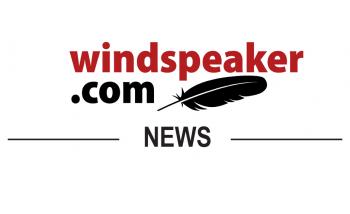Image Caption
Summary
Local Journalism Initiative Reporter
Windspeaker.com
“I am very much encouraging my 92-year-old mom to get in line as soon as (a COVID-19 vaccine) is available in her community and she’s all ready and excited about it as well,” said Leila Gillis. She is acting chief nursing officer and director general primary health care with the First Nation and Inuit Health Branch (FNIHB) of Indigenous Services Canada (ISC).
Gillis was speaking on Jan. 14 on the weekly virtual town hall hosted by the First Nations Health Managers Association.
“Many communities are currently managing active outbreaks and had such a challenging Christmas period. I worked through it all. And there’s still evidence of community transmission in many, many jurisdictions across the country,” said Gillis.
According to figures posted on the ISC website of coronavirus activity on First Nations reserves, as of Jan. 14 ISC “is aware of” 12,071 confirmed positive; 4,581 active cases; 7,377 recovered cases and 113 deaths.
Worst hit are reserves in the prairie provinces with Alberta numbering 3,944 confirmed positive, Manitoba with 3,201 and Saskatchewan with 3,084. British Columbia is next with 1,081 confirmed positive.
“We’re still working hard to prevent COVID spread in our continued and longstanding public health measures and we can’t lose sight of that while we’re also working to organize and support one of the biggest vaccine administration campaigns in this country’s history,” said Gillis, who spent time reassuring Indigenous viewers and listeners of the safety of both the Pfizer-BioNTech and Moderna vaccines.
Some First Nations and Inuit communities or members of those communities have been prioritized in the first phase of the vaccine rollout.
The vaccines have been “rigorously tested” and the benefits far outweigh the risks, said Gillis.
Valerie Gideon, senior assistant deputy minister with FNIHB, said in a national news conference on Jan. 13 that having Indigenous health professionals involved in the process is significant in addressing suspicion from the Indigenous population.
“There are a lot of amazing Indigenous health professionals that are speaking very proactively about the vaccine and supporting that understanding that the (ISC) Minister (Marc Miller) is speaking to and I think that makes a significant difference. They are such influential decision makers with respect to the vaccine planning and administration process, not only within their communities, but overall in the context of supporting First Nations and others across the provinces,” said Gideon.
Still some members of the Indigenous population have approached the vaccine with wariness.
“The hesitancy comes sometimes with good reason,” said Miller. “You see that hesitancy that is based on perhaps experiences … So it’s based on reality.”
He pointed out that Indigenous peoples were the target of medical procedures and experiments in the 1950s and 1960s and they continue to experience mistreatment in today’s healthcare system.
Miller also talked about the need to have information available in Indigenous languages as well as the need to build trust with health officials who come into communities to deliver the vaccinations.
“One (way) that works best is when you engage local communities to get that information out there, tell people there’s an informed choice, and let them make the choice. It makes for more work but it makes for better vaccination strategies,” said Miller.
“We’ve heard a lot more request for the vaccine to arrive than we’ve heard hesitancy… That’s at the leadership level. We will see in the numbers of uptake,” said Gideon.
Miller said 75 per cent of the adult population in the territories are expected to have received their second dose of the vaccine by the end of March. Both the Pfizer and Moderna vaccines require two doses.
Rollout of the vaccine to urban Indigenous population – a larger number than live on-reserve – will require “coordination amongst partners, provinces and territories. Efficient and effective roll out requires co-planning and is dependent on full collaboration and partnership,” said Miller.
To that end, Miller announced an additional $380 million for the Indigenous Community Support Fund, which provides money to organizations and groups to work with Indigenous people in an urban setting.
He said figures weren’t available for how COVID was impacting Indigenous people living in cities, although he did say that those living in Montreal and Winnipeg had been “really hit.”
“Our government is working with all provinces and territories to encourage full inclusion of Indigenous perspectives to ensure integrated and coordinated approach to support the administration and planning process of the COVID-19 vaccine for Indigenous peoples,” he said.
In total, Miller announced a further $1.2 billion in investments to support the ongoing public health response to COVID-19 in Indigenous communities. The money will provide communities with the flexibility to respond to needs. This funding also includes $631.6 million over two years to support measures such as procuring personal protection equipment and adapting existing facilities and $186.8 million over two years to support needs and gaps in those facilities and to provide additional home care in Indigenous communities.
This brings total federal government funding to approximately $4 billion to fight COVID-19.
“I am encouraged by Minister Miller’s commitment to First Nations having flexibility to respond to needs and will continue to press provincial and territorial governments to support and work together with First Nations as we respond to this crisis. This includes access to mental health supports for our front-line workers and community members,” said Assembly of First Nations National Chief Perry Bellegarde.
Bellegarde said he would be getting his COVID vaccine when it was his turn.

